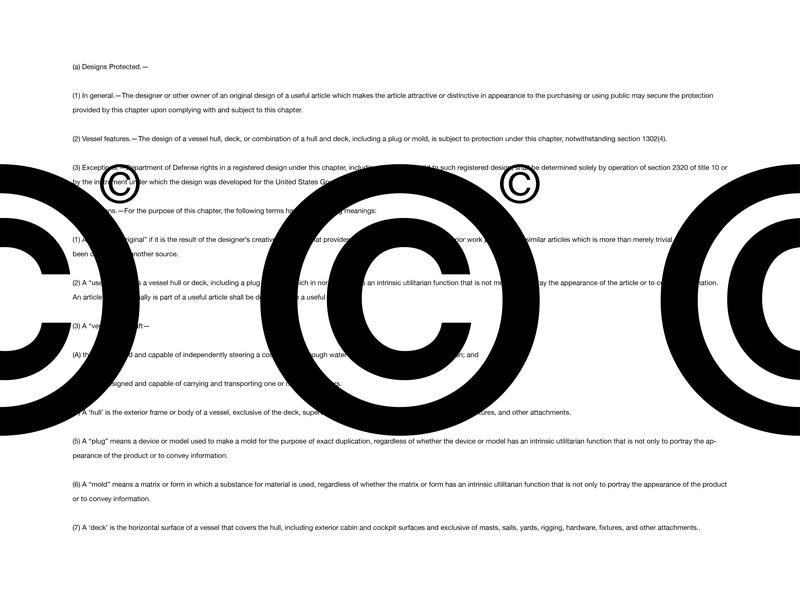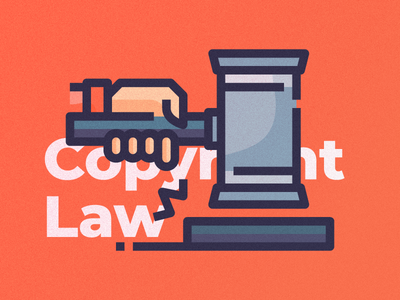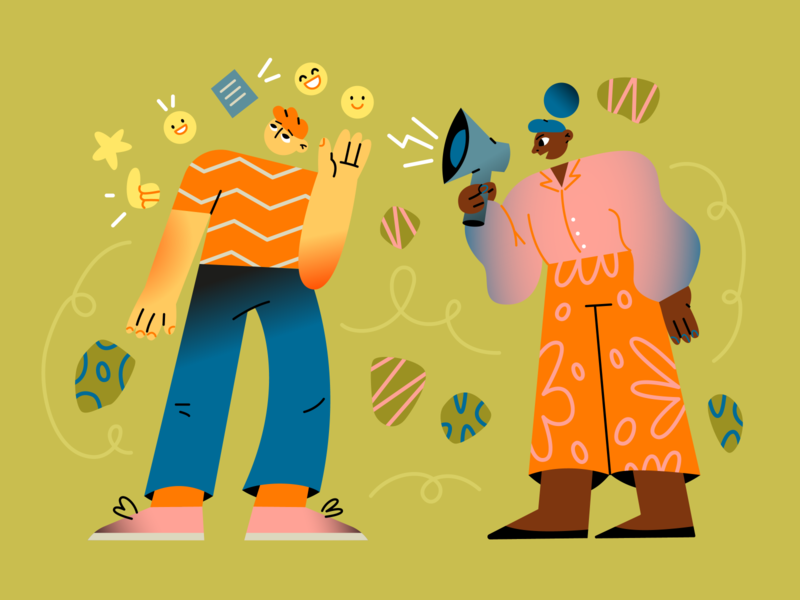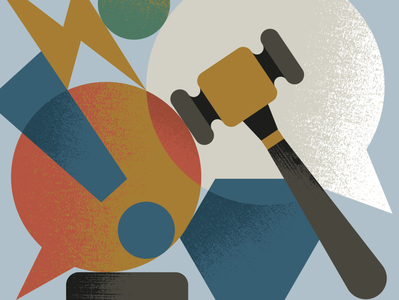In this article by Cameron Chapman, learn how to protect your work from copyright infringement and what steps you need to take to get the infringing work taken down ■
I don’t remember the first time my work was stolen; it’s happened quite a few times over my creative career. Every time it’s happened, I’ve found out by someone emailing me to let me know they saw an article I wrote on a website without crediting me (I’ve only ever had my writing work stolen, and not any of my design work, but the way it’s dealt with is effectively the same).
Depending on the type of work stolen, in some cases, it’s an honest mistake. I’ve had people who have copied my articles onto their own blogs, leaving my byline intact. I’ve had other times when people have copied my content and haven’t credited me. That kind of thing can happen with design work, too. Someone might not realize that copying an illustration or an icon set you created is copyright infringement. Then again, if someone is taking a design you created wholesale, there’s generally little chance they don’t realize that’s not something they should do.
Regardless of how your work is stolen, or what type of work it is, there are a few things you can do to protect your work and get the infringing work taken down.
Keep in mind that time is money too. If you find yourself in this situation, you should use a tool like Bonsai to keep track of your time, as well as any tasks you create to deal with removing your stolen work.
Understanding Copyright
In virtually every country in the world, copyright is established as soon as you create something like an icon set, design, illustration, code, or any other tangible work (copyright does not apply to ideas, only to the work that results from those ideas). Registration can provide extra protection, but copyright exists regardless of whether it’s registered or not.
In the US, registration allows the copyright holder to collect punitive damages in addition to actual damages if a copyright case makes it to court. It also makes it easier to prove when the copyrighted work was originally created.
In other countries, the protections afforded by copyright registration vary. But regardless of registration status, every country that has signed on to the Universal Copyright Convention or the Berne Convention (nearly 180 countries) offers copyright protection upon creation of a work.
Regardless of whether you’ve registered the copyright on something you’ve created, you have at least some protection under copyright laws.
Reach Out First
You wake up one morning to find an email from someone saying they saw your work appearing on a site they don’t think you’re affiliated with. Or, as has often happened to me, someone emails you to say how much they loved seeing your work on XYZ site that you’ve never heard of.
You check out the link they provided (or do a little searching) and find that yes, your work was used without your permission.
What do you do? It can be tempting to immediately lash out on social media about how someone stole your work, but before doing that, I recommend reaching out directly to the other party. Send them an email simply notifying them that they’re not authorized to use whatever work they’ve used on their site.
If you’re willing to license the content to them, you can mention that in the email. In some cases, people will be happy to pay you for your creative work and simply didn’t realize it wasn’t free for use.
In other cases, you’ll either get a nasty response or no response at all. So what do you do then?
DMCA Takedown Notices
In the US, DMCA (Digital Millennium Copyright Act) Takedown Notices are a pretty easy option to exercise without the help of a lawyer (though consulting a lawyer is generally a good idea with any legal issues). Even if you’re not in the US, if the servers hosting the infringing site are located in the US, DMCA is available to you.
Takedown notices are sent to the web hosting company, specifying that they are hosting infringing content. Hosting companies are typically quick to respond to these notices, as they can be held liable for damages if they don’t. The infringing party does have a chance to respond to the claim, but in most instances, they have nothing to support their use of the content, so they simply remove it from their site. In the case that they don’t remove the content, their entire site can be taken down.
In the European Union, the European Copyright Directive (EUCD) offers protections similar to the DMCA in the US. Other countries and regions may have similar methods for having infringing work taken down.
Cease And Desist Letters
If for some reason a takedown notice isn’t an option, or the web host doesn’t take down the infringing content, that’s generally when getting a lawyer is no longer just advisable, but necessary. Your next option is likely a cease and desist letter. There are relatively low-cost legal services you can find that will create these letters for you. In many cases, just seeing a letter from a legal firm is enough to get your infringed content removed. Most people don’t want to deal with a legal battle.
Cease and desist letters spell out what content is being infringed, demand that the content be taken down, and often threaten further legal action if the content is not removed. They’re not particularly friendly, but by the time they become necessary, most people are no longer worried about “being friendly.”
Going Public With The Theft
You’ve sent an email asking the site to remove your content. You’ve sent a DMCA takedown notice (or equivalent). You’ve had a lawyer send a cease and desist letter. And your content is still sitting there on the infringing site. Should you go public with the theft?
This is a tricky one, and something you’ll need to assess on your own. Drawing attention to infringing work might result in the work being removed. But it also might draw you into a public battle, and one that you’re not necessarily going to come out on top of.
The court of public opinion is fickle at best. And even when you’re ethically and legally in the right, that doesn’t mean you’ll be perceived that way. Especially if you’re perceived as a bully picking on an “underdog.”
You also need to tread lightly when taking any accusation public to avoid being accused of defamation (libel or slander). Even if a defamation case has no merit, it doesn’t mean someone can’t force you to defend yourself in court, which can be both time consuming and expensive.
My best advice when it comes to taking something like this public is to think it through carefully and seek legal advice before doing so.
Pursue or Let It Go?
You’ve pursued all of the inexpensive, quick ways to deal with copyright infringement to no avail. Your work is still being infringed upon. Is it worth taking it further and suing the infringing party? Again, this is a question to consider with a lawyer. But there are some things you can consider first.
- Did you register the copyright? If you did not, realize that in most jurisdictions you’re only going to be able to collect actual damages caused by the infringing work. You’re not going to get a big settlement (tens or hundreds of thousands of dollars) unless you can prove that the copyright infringement cost you that kind of money.
- Do you have the time and resources to fight this in court? And is it worth it? If there’s a lot of money involved, then the answer to this might be a resounding yes. But if the work in question is only worth a few hundred dollars (or less), the cost to pursue it, in terms of both time and money, is likely not going to be worth it.
- Is the infringing party from a different country? Fighting international legal battles presents all kinds of challenges—both in terms of figuring out the jurisdiction in which to pursue the case and in terms of collecting any monetary awards.
A lawyer will be able to better advise you on whether something is worth pursuing in court.
Should You Hire a Lawyer?
I’ve already mentioned a few times in this article that you may want to hire a lawyer. I can’t give you legal advice, only relay my experience with these situations. In short, if you’re wondering if you should hire a lawyer, the answer is probably yes.
A good idea is to keep track of how much time you’ve already spent on this situation. Bonsai is a great tool for tracking your time, which you’ll be able to share with your lawyer.
If spending money on a lawyer isn’t something you want to consider, check out small business resources in your area to see if any local organizations do free or low-cost legal clinics for entrepreneurs. These can be an excellent way to get advice on matters like copyright infringement. You may not be able to get any actual legal documents (like cease and desist letters), but you can at least get advice on your options and whether it’s worth pursuing.■
![]() About the Author — Cameron Chapman: Editor. Blogger. Author. Designer. Copywriter. Marketer. Entrepreneur. Speaker. Consultant. Coach. I wear a lot of hats. What most of them have in common, though, is storytelling.
About the Author — Cameron Chapman: Editor. Blogger. Author. Designer. Copywriter. Marketer. Entrepreneur. Speaker. Consultant. Coach. I wear a lot of hats. What most of them have in common, though, is storytelling.
Find more Community stories on our blog Courtside. Have a suggestion? Contact stories@dribbble.com.














